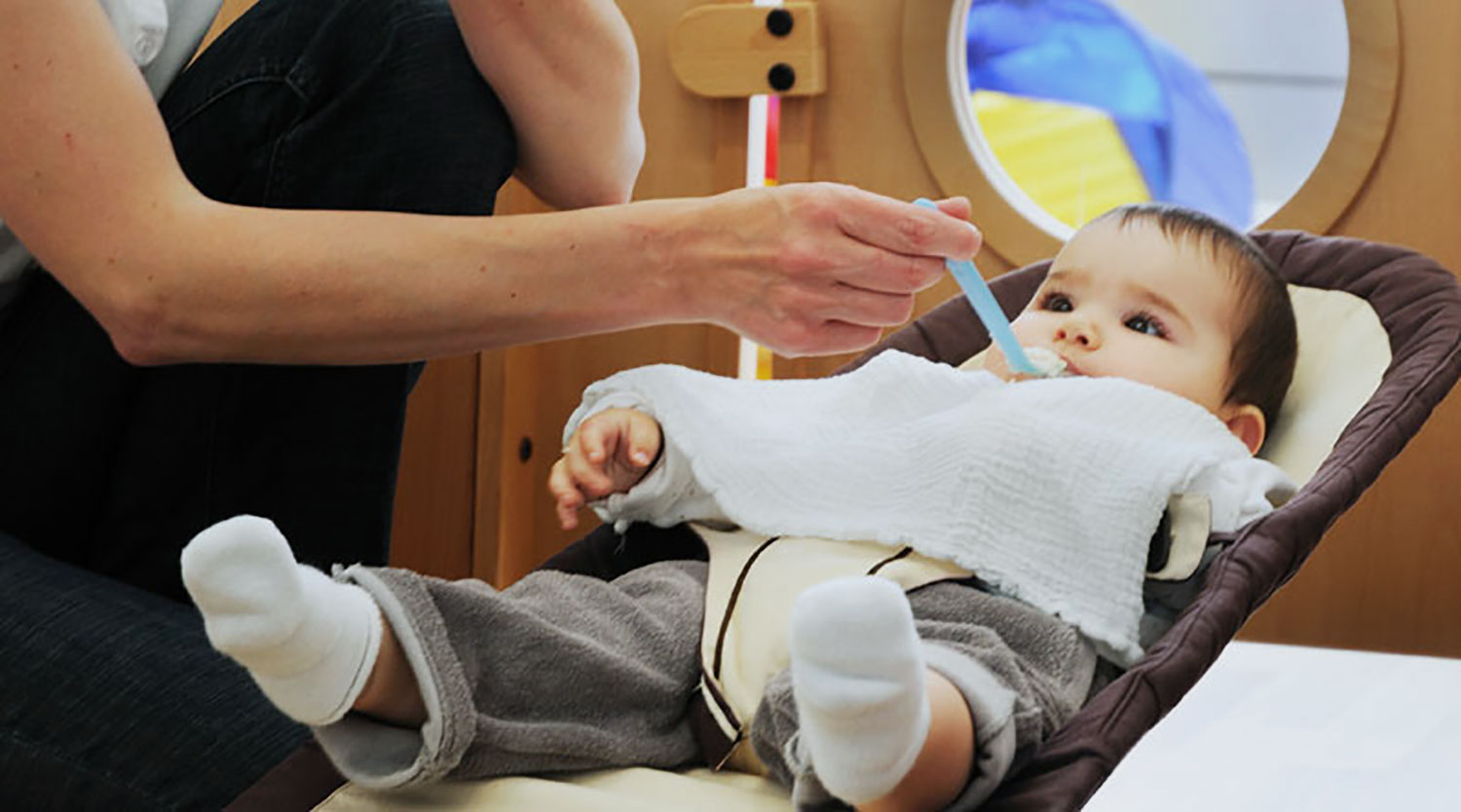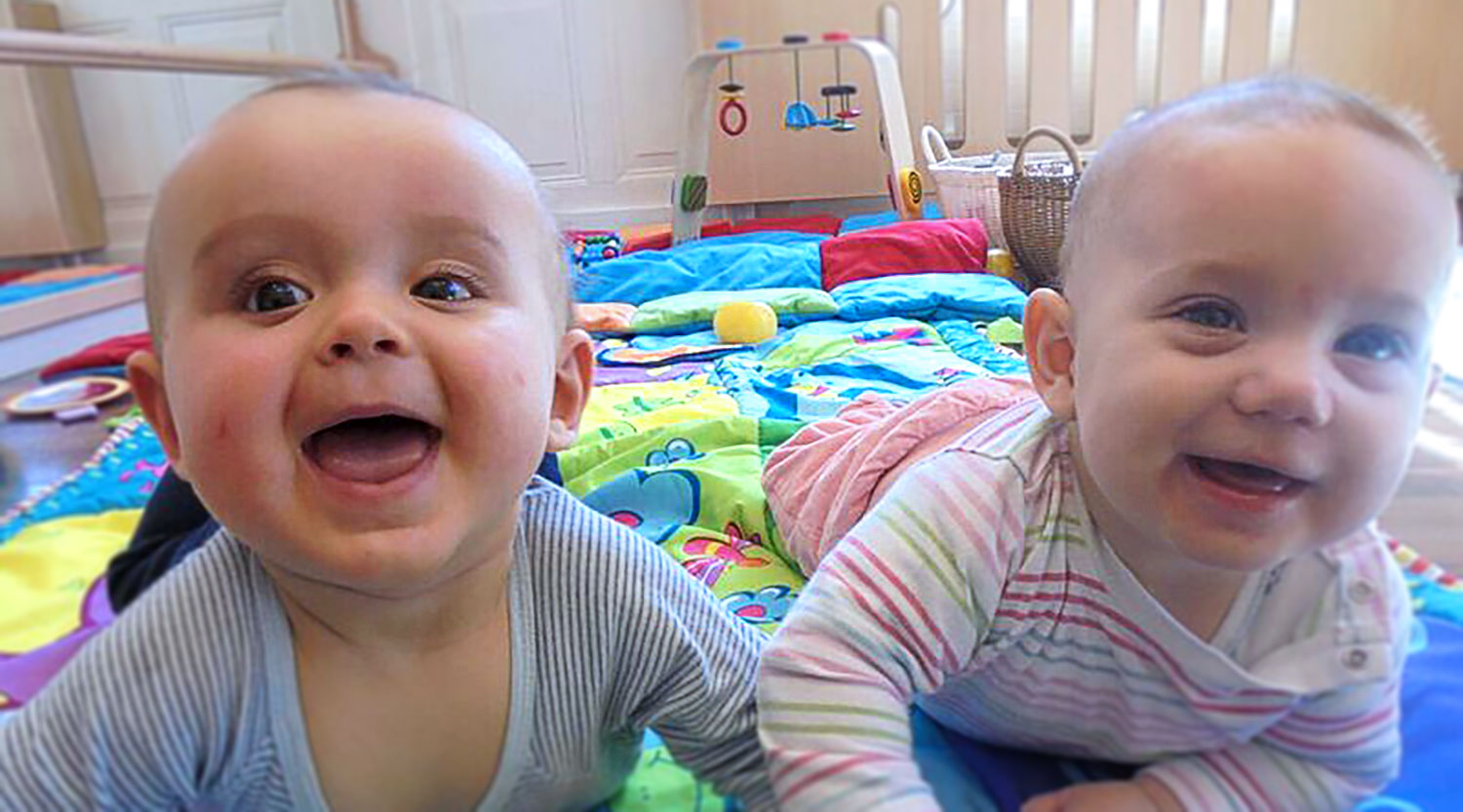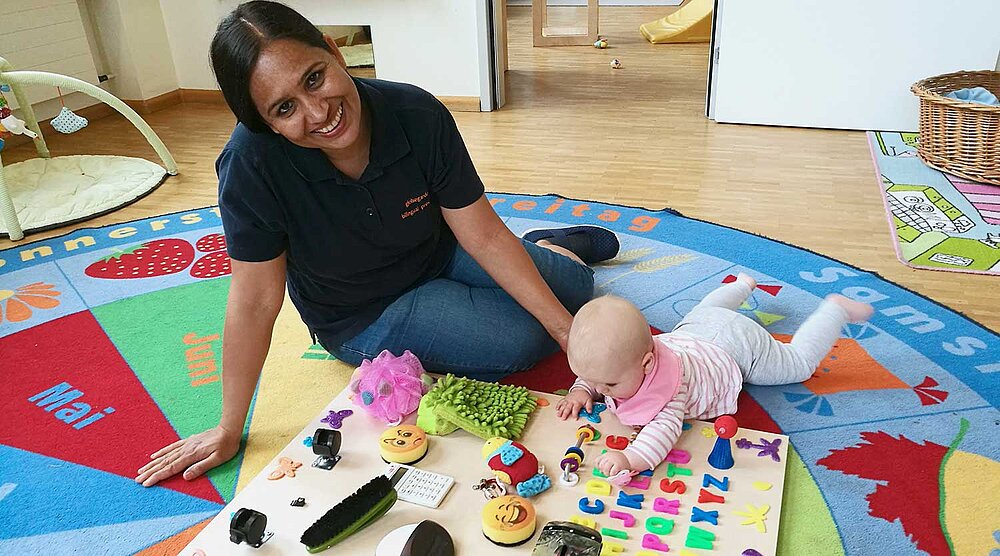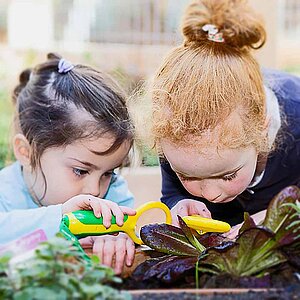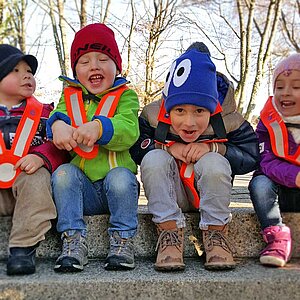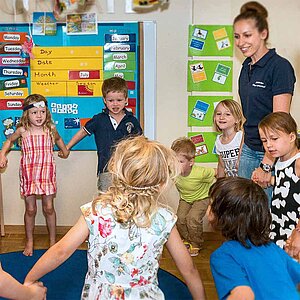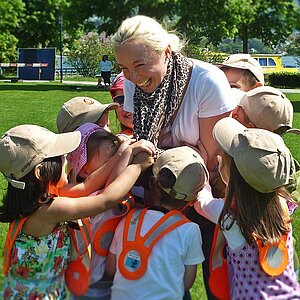
Infant and Baby Care
A World for Babies
Our Youngest at globegarden
For our youngest ones, we provide a warm, welcoming environment where your baby can grow from a bundle of joy into a bundle of curiosity. With our globegarden infant and baby care, we keep your baby safe and sound and ensure peer-to-peer interactions from the earliest moments onwards to encourage learning as well as physical, mental and social development.
Smart Beginnings
85% of brain development occurs in the first five years of life. This formation impacts cognitive ability, the capacity to form relationships and other lifelong skills that determine a child’s life success. Research shows that early quality experiences can have an important effect on this critical time of development when the foundation of literacy, numeracy, social and emotional growth, and physical health is laid.
Our baby professionals support every milestone of your baby’s development in this important time.
- A dedicated caregiver team
- Small age-specific baby groups or familiar group settings of children with mixed ages
- Tailored programs for each baby with individual sleep rhythms and feeding schedules
- Individual breast feeding or feeding breast milk
- Transition support from breastfeeding to bottled milk or spoon feeding
- Experiential and comfortable spaces to explore, roll over, pull up, crawl and be encouraged to walk
- Safety, security and hygienic measures in place
How Babies Learn at globegarden
Our carers focus on keeping your baby happy, engaged and secure. Babies are born learning. Our program, "Discover the World©", and our six learning areas are age-appropriately transformed for our very young ones. Because early years matter most.
- Explorations of texture, color, patterns, size and shape, smell, taste and weight
- Cognitive experiences, such as object permanence, spatial relationships and classifying
- Large and small motor experiences, such as gripping, throwing, manipulating and walking
- Language and music through adult-child conversations, listen and respond techniques, reading and language play, rhymes and riddles, and explorations in music
- Personal expression through movement, mirrors, imitation, etc.
- Learning hygiene practices, such as washing hands and brushing first teeth

